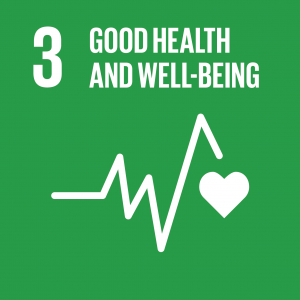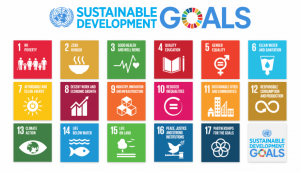By Ainun Marthiah and Haidah Halid
A recent webinar has illustrated that even though a big part of humanity is pushing for equal rights among all individuals in society, many are not prepared to face and accommodate the needs of those who are most marginalised – the PwD (Persons with Disabilities) community.

Dr. Siti Noraida from Jeffrey Cheah School of Medicine and Health Sciences, Monash University emphasised that the third United Nations Sustainable Development Goal (SDG3) is mainly about two issues; 1) prevention and treatment, as well as 2) maintaining mental health and well-being.
Along with that, Dr. Noraida spoke about how these two matters would be like for the PwD community and what we can do, as allies.
Prevention and Treatment
For PwDs, to ensure they get or maintain good health is to receive prevention and or treatment. However, the obstacle for PwDs when it comes to prevention and treatment is the ability to be consistent in receiving or requesting for said action.
œConsistency in treatment for PwDs is not as easy as it is for those who are able-bodied, said Dr. Noraida.
This statement proved to be a staggering reality for PwDs as Dr. Aida described what a single appointment can entitle them for.
She explained that once they book an appointment, there are multiple steps that are crucial to ensure they make it to their consultation. From securing a transport that is able to accommodate their needs or facilities like their wheelchairs to confirming a caretaker if they have other children at home or are parents themselves to taking time off work to make time for the appointment.
On top of that, they have to go through the normal procedures when attending a consultation or appointment like the long waiting hours. Dr. Noraida said, œFor them, its not the time for them to sit on a chair scrolling through their phone.
What we can do as allies of PwDs is to empathise and sympathise with them in these situations. Smiling or greeting them cheerfully can help ease them during such a stressful situation.
Maintaining mental health and well-being for PwDs
Dr. Noraida explained how the mental health of disability people may suffer because many people are uneducated and have a lack of knowledge of the disability issues. Sometimes PwDs are shunned by society because they seem different and are unable to keep up with the rest of society physically.
œTo protect the mental health and well-being of PwDs, it must essentially include education, healthcare knowledge, and public awareness to the general public, she stated.
Additionally, Dr. Noraida stressed that persons with disabilities may have different abilities and needs from us, but it does not make them any different from the rest of us.
She also stated that discrimination in society may have an impact on their mental health since unpleasant feelings such as pain and hurt were generated.
In the webinar, Dr. Noraida clarified that the ongoing United Nations Sustainable Development Goals (SDGs) blueprint is actually a follow-up of the Millennium Development Goals (MDGs).
The MDG goals which were achievements the international organisation has set to complete in 2015, possessed gaps which illustrate the goals as not inclusive of every individual in society, like PWDs. Therefore, demands were made from many advocate groups to develop a more socially inclusive and sustainably friendly global goals model. This led to the 17 global goals we have today.

The webinar held on 28 May was moderated by Ma Ruo Nan and Nor Atika from Professional Speech Communication (COMM 3050) class.***
